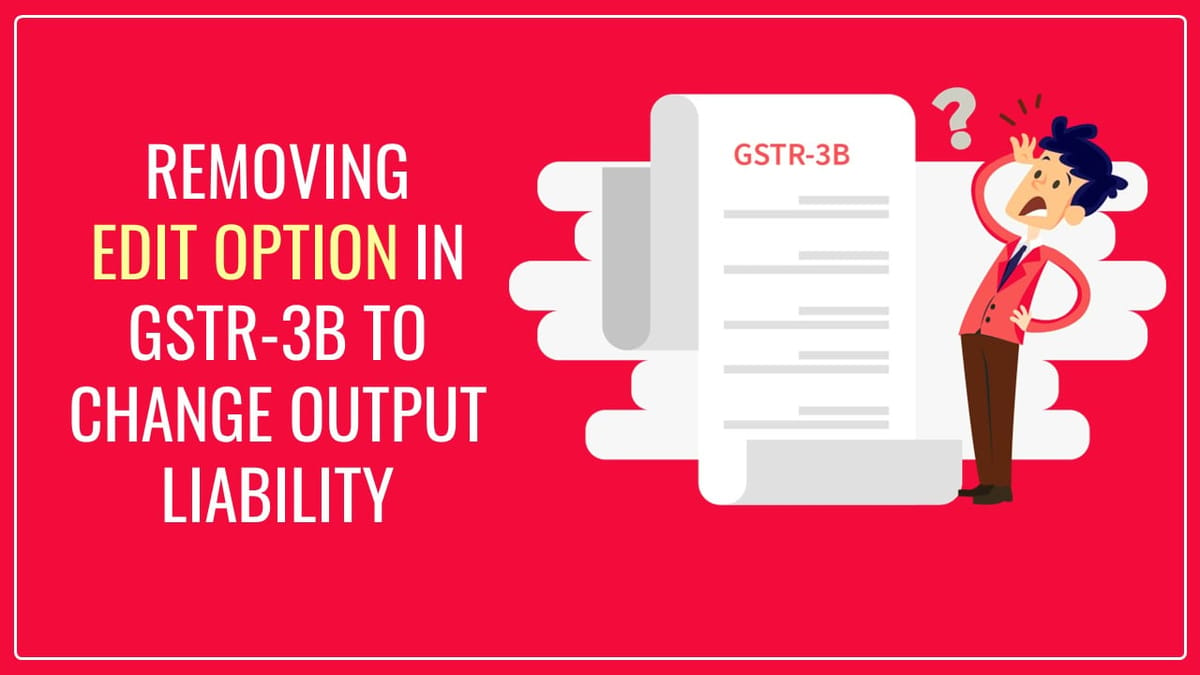The government intends to eliminate the liberty given to purchasers and sellers to change their output liability by locking their invoices and removing the edit option.
Reetu | Feb 6, 2024 |

Govt to do away with edit option in GSTR-3B to change output liability, says Revenue Secretary
The government intends to eliminate the liberty given to purchasers and sellers to change their output liability by locking their invoices and removing the edit option in the following financial year, Revenue Secretary Sanjay Malhotra stated. The proposal will be reviewed at the next GST Council meeting, he added.
The move attempts to promote compliance and reduce the prevalence of fake invoicing in the indirect tax regime.
“We need to increase compliance even further so that the problem of fraudulent entities and fake billing can be controlled. Right now, it is a trust-based system, and we have provided a tool that is being abused by some unethical, non-existent individuals by forming these bogus companies. So we’ll tighten our systems,” Malhotra said in an interview.
The data exists, but it is not currently being used fully to combat the fake invoicing issue.
“We do not need GST Council approval for this, but we will raise it to their attention during this quarter’s meeting. The systems are being created, which will take some time. Acceptance is required for each invoice. So the entire system needs to be changed,” the revenue secretary stated.
According to insiders, the next GST Council meeting would likely take place later in February.
Currently, both buyers and sellers have the ability to modify their transactions and correct any errors even after the tax has been credited.
“The government has provided the option to edit, which I would like to eliminate. After selling to B, A uploads the invoice and pays the tax the next month. However, if A discovers an error during tax payment, he has the option to amend it. So the ability to edit will be withdrawn,” he stated.
Locking invoices and removing the modifying option after submitting GSTR-1 and GSTR-3B will result in several benefits for the overall economic framework.
However, this may present certain difficulties, such as limited flexibility for addressing actual errors, greater administrative workload, and potential system integration issues. Small businesses may have severe compliance challenges, and initial errors may exacerbate disagreements.
Furthermore, the expenditures of additional technology and training, combined with the possibility of sophisticated fraud schemes aimed to exploit the system before locking, underline the importance of careful evaluation and mitigation techniques to balance the benefits against these risks.
“Suppliers submit their invoice-specific sales information in GSTR-1. If a supplier discovers inaccuracies in sales details in the following months, they may amend/revise them, such as the recipient’s GSTIN, the value of supply, and so on. If this practice is discontinued, real taxpayers may confront difficulties in correcting unintentional errors. The only option would be to submit a credit note for inaccurate bills,” Pritam Mahure, a GST specialist, explained.
In case of any Doubt regarding Membership you can mail us at [email protected]
Join Studycafe's WhatsApp Group or Telegram Channel for Latest Updates on Government Job, Sarkari Naukri, Private Jobs, Income Tax, GST, Companies Act, Judgements and CA, CS, ICWA, and MUCH MORE!"